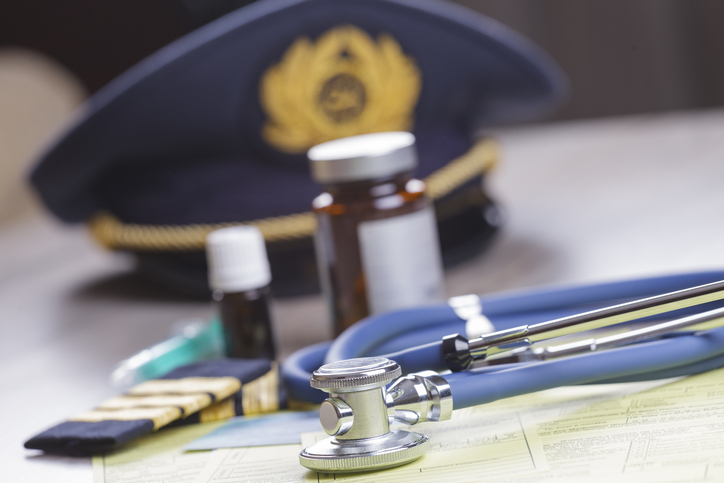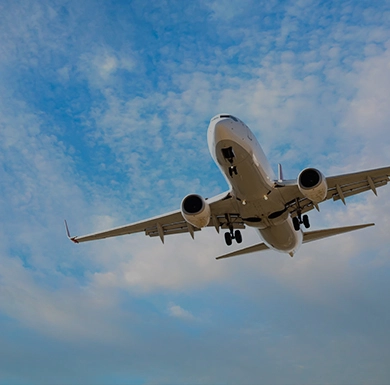
Trying to get your FAA medical certificate after fainting? Getting a FAA medical certificate after a fainting spell or “syncopal” event is possible. To get your FAA medical certificate after fainting, you will need to establish for the Office of Aerospace Medicine that you have a good explanation for why you fainted. Specifically, the FAA wants to know what caused you to faint and if necessary, that the underlying condition has been effectively treated.
The ultimate goal for the FAA in such a case is that they want to be able to mitigate the risk to aviation safety and ensure you won’t experience another fainting spell. Reasonably so, the FAA wants to ensure that you will not faint while flying.
As the FAA medical certification process is inherently a legal process, it is important to consider the Federal Aviation Regulations (“FAR”) as they relate to your medical history. As the FARs relate to medical eligibility and fainting you should review 14 C.F.R. §§ 67.109(a)(2) (for first-class), 67.209(a)(2) (for second-class), and 67.309(a)(2) (for third-class).
You will note that the standards are the same for a history of fainting whether you are applying for a first-, second-, or third-class medical certificate. Specifically, the regulations require: “[n]o established medical history or clinical diagnosis of … (2) disturbance of consciousness without satisfactory medical explanation of the cause…” As you can see, the event of fainting, in and of itself, is not disqualifying. Not being able to provide a satisfactory medical explanation for why you fainted is disqualifying.
How do you approach establishing a satisfactory medical explanation of the cause for fainting? The FAA has generated a disposition table for all classes of certificates for individuals with a history of syncope. Therein, the FAA allows for issuance of a medical certificate by your Aviation Medical Examiner (“AME”) if your fainting spell was caused by known etiology (such as a blood draw) and the AME can say “no” to all items on the Syncope Decision Tool for The AME.
If, however, you do not have a reasonably obvious, satisfactory explanation for fainting, like passing out at the sight of blood, you will fall into the “unknown or unexplained cause” protocol. Within that protocol, the FAA will require that you provide a cardiac evaluation, with specific diagnostics. Sometimes, depending on the presentation of your event, the FAA will also require a neurological evaluation.
If you are applying for a FAA medical certificate after fainting, keep the following information in mind before you visit your Aviation Medical Examiner for examination:
- Ensure that you obtain a detailed clinical progress note from your treating physician or specialist prior to your examination with an AME. If you fail to produce a detailed clinical progress note within the period of time your AME has to submit your examination to the FAA, you may be at risk for having your application deferred to the FAA.
- It is your responsibility to establish for the FAA that there is a medical explanation for why you fainted. Keep in mind that the regulation requires a “satisfactory medical explanation.” Therefore, you must be able to provide a reasonable argument as to why the medical evidence you present to the FAA establishes a “satisfactory” medical explanation for your history of fainting.
- If the FAA disagrees with your medical explanation for fainting, you can ask for reconsideration of the FAA’s determination.
- If you cannot establish a satisfactory medical explanation for your history of fainting, the FAA consider your eligibility without a satisfactory explanation after a two (2) year recovery period with no interim syncope.
- If you do have a known medical explanation for your history of fainting, make sure that the condition which caused you to faint is also properly addressed for FAA medical certification purposes.
- Don’t forget to report your history of fainting at question 18B. on your Form 8500-8, Application for Airman Medical Certification!
Contact the Aviation Lawyers from The Ison Law Firm Aviation Lawyers for Help Today You need both a pilot and a lawyer on your side for your aviation law needs. Don’t hesitate to contact our team from The Ison Law Firm Aviation Lawyers to schedule a confidential consultation with an experienced aviation lawyer today. We’re pilots representing pilots.
The Ison Law Firm Aviation Lawyers offers FAA enforcement defense and medical certification representation worldwide! We’re pilots representing pilots. The Ison Law Firm Aviation Lawyers offers FAA enforcement defense and medical certification representation worldwide!
The Ison Law Firm Aviation Lawyers
Phone: Toll-Free 855-322-1215
Office Hours: Mon – Thu, 9:00 AM to 5:00 PM
Fri, 9:00 AM to 12:00 PM
Disclaimer: Messages left for attorneys after these business hours will be addressed the following business day, during business hours.

